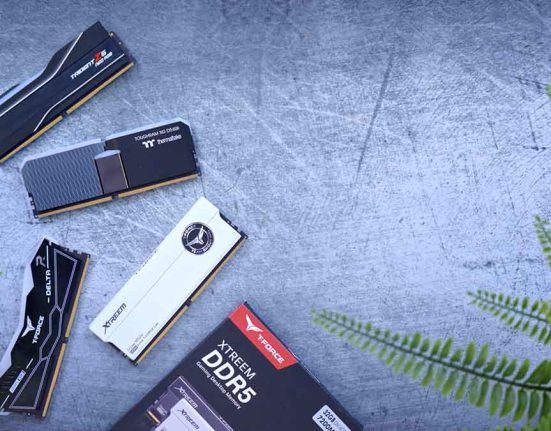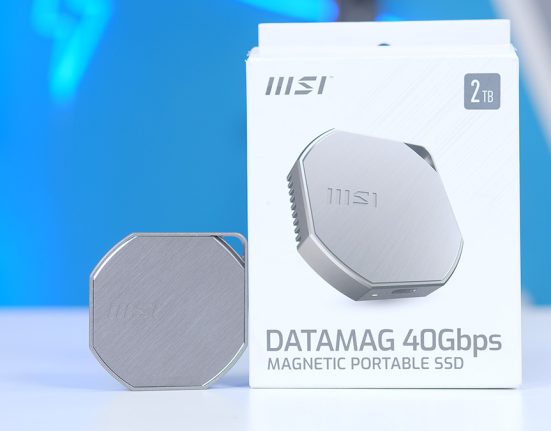With such a huge number to choose from, finding an excellent PC case can feel like a bit of a daunting task. At the higher-end of the market, you also come to expect far more from a case as far as features, connectivity and build quality is concerned. That’s why we’ve rounded up our favourite cases under $300, to show just what can be achieved at the very top end of the market.
The Best Cases to Buy Under $300
1. MSI MPG Gungnir 300R Airflow

The MSI MPG Gungnir 300R Airflow is a perfect case for those looking at a great blend of features, aesthetics and performance. This case maximises airflow via an expansive, mesh front panel and a trio of 120mm RGB fans up front. The white colorway offered by MSI also offers a welcome alternative to the black design on offer, and is a great choice for those after a slightly different look to their build.
Heat dissipation is a clear focus of the Gungnir 300R, but it is certainly not the only area of note. The rotational PCI-E slots at the rear allow you to chop and change the orientation of your graphics card, facilitating both vertical and horizontal installations. There is ample GPU clearance within the Gungnir 300R with 360mm of length clearance, great for popping in even top-end GPUs. There is also an included GPU support bracket in this case that feels robust, and will reduce graphics card sag.
| MSI MPG Gungnir 300R Airflow | Specification |
|---|---|
| Case Size | Mid-Tower |
| Pre-Installed Fans | Front: 3x 120mm RGB Rear: 1x 120mm RGB |
| Max Fan Support | 7x 120mm |
| Max Radiator Support | Front: Up to 360mm Top: Up to 360mm Rear: Up to 140mm |
| Motherboard Support | Up to E-ATX |
| GPU Clearance | 360mm |
| CPU Cooler Clearance | 175mm |
| Front IO | 2x USB 3.2 Gen1 Type-A 1x USB 3.2 Gen2x2 Type-C 1x 3.5mm Combo Jack |
While the Gungnir 300R Airflow is a very well-rounded case, it isn’t by any means the flashiest in this roundup. While the white or black colour options look clean and sharp, the case has no other external design cues of note. Other chassis in this lineup offer innovative features like an LCD screen, or push visuals up with metal accents, diffused RGB strips or creative ventilation.


Suggested Article: The Best PC Cases to Buy for an RTX 4090 PC Build
2. Lian Li O11 Vision

Those looking to pick up a PC case under $300 that priorities looks above all should closely consider the Lian Li O11 Vision. Building upon the original design of the O11D series, this chassis boasts seamless glass panels across the entirety of the case, providing a huge window into your PC build that does a great job of showing off all of your components in their full glory.
As is expected of a Lian Li case, there’s a massive focus on modularity, providing you with plenty of tools and space for custom liquid cooling. The O11 Vision also offers a seamless building process by sporting a plethora of tool-less panels, while also allowing you to build much of your PC outside of the case thanks to the adjustable motherboard tray.
| Lian Li O11 Vision | Specification |
|---|---|
| Case Size | Mid-Tower |
| Pre-Installed Fans | None |
| Max Fan Support | 8x 120mm |
| Max Radiator Support | Side: Up to 360mm Bottom: Up to 360mm Rear: Up to 240mm |
| Motherboard Support | Up to E-ATX |
| GPU Clearance | 455mm |
| CPU Cooler Clearance | 167mm |
| Front IO | 2x USB 3.0 Type-A 1x USB Type-C 1x 3.5mm Combo Jack |
The O11 Vision has ample space for a mass of varying components, offering 455mm of graphics card clearance and supporting multiple 360mm liquid cooling radiators too. There’s a huge amount of room here for high-end and enthusiast-level PC builds.
Our biggest concern with the O11 Vision is airflow. Where the Gungnir 300R prioritises ventilation, Lian Li’s O11 Vision has replaced most sides with glass. There isn’t a huge amount of perforations across this chassis, which does result in weaker thermals when compared to some alternatives.
3. Thermaltake CTE T500 Air

Stepping things up a notch, and the Thermaltake CTE T500 Air is a Full Tower case geared towards enthusiasts that need ample space for custom liquid cooling. This chassis can house up to a 420mm AIO at the front, with space for a 360mm cooler on the rear. You’ll find ventilation spanning across the entirety of the case, which is great for airflow, and a range of different internal component configurations for radiator positioning.
Much like the Gungnir 300R, the CTE T500 Air massively prioritises airflow, with the Full Tower stature allowing you to leverage much more internal space, with little restrictions by way of GPU, cooler or motherboard size. This is further complimented by the motherboard tray, which allows you to rotate the motherboard 90 degrees, providing alternative ways to style your system and options when it comes to airflow pathways.
| Thermaltake CTE T500 Air | Specification |
|---|---|
| Case Size | Full Tower |
| Pre-Installed Fans | 3x CT140 140mm |
| Max Fan Support | 11x 120mm |
| Max Radiator Support | Front: Up to 420mm Top: Up to 120mm Rear: Up to 360mm |
| Motherboard Support | Up to E-ATX |
| GPU Clearance | 385mm |
| CPU Cooler Clearance | 195mm |
| Front IO | 1x USB 3.2 Gen2 Type-C 2x USB 3.0 Type-A 1x 3.5mm Combo Jack |
While the T500 Air is a rather impressive case, the size of this chassis makes it hard to fit in many gaming setups. Thermaltake have done a good job adding plenty of features in to the internals, but not every potential buyer will need the flexibility that this mammoth form factor provides.


4. be quiet! Shadow Base 800 FX

Those looking for a PC case that offers an awesome blend of features and performance, should look no further than the bequiet! ShadowBase 800 FX. With four pre-installed RGB fans including, of which three are located at the front and one is at the rear,. you aren’t short on airflow. Complimenting the lighting that these fans provide are a pair of RGB strips at the front of the case. When switched on, you’ll see the RGB lighting come to life, all of which can be synchronised using your motherboard or the cases included RGB controller.
While the Shadow Base 800 FX is a Mid-Tower case, it still provides ample space allowing you to build a range of different systems. With support for 420mm liquid cooling radiators, and 430mm of graphics card clearance, this case does cater to those building an enthusiast-level system with large components.
| Thermaltake CTE T500 Air | Specification |
|---|---|
| Case Size | Mid-Tower |
| Pre-Installed Fans | 4x Light Winds 140mm |
| Max Fan Support | 8x 140mm |
| Max Radiator Support | Front: Up to 420mm Top: Up to 420mm Rear: Up to 120mm |
| Motherboard Support | Up to E-ATX |
| GPU Clearance | 430mm |
| CPU Cooler Clearance | 180mm |
| Front IO | 1x USB 3.2 Gen2 Type-C 2x USB 3.2 Type-A 1x 3.5mm Combo Jack |
The Shadow Base 800 FX from be quiet! is a solid case overall, and you can expect thermals to be well optimised based on the sheer amount of ventilation this case offers. However, we feel the price of this case is a little high considering the available feature set, meaning it may be worth looking elsewhere if you’re after a little more value for money at this price point.


How We Test Cases
To inform our product recommendations, we’ve tested and analysed a plethora of cases to ascertain what kind of building experience they offer, and if airflow is optimised across each design. This allows us to forge a solid overview of each chassis, providing you with a discussion of the value-proposition that all of these cases offer. There are a number of factors we take into consideration when testing cases, these are:
- Size
- GPU and CPU Cooler Clearance
- Radiator and Fan Capacity
- Design
- IO Support
- Motherboard Support
- Pricing
Frequently Asked Questions
How Much GPU Clearance Do I Need?
Upto 400mm of GPU clearance is going to be more than sufficient for most GPU installations. Keep in mind that front mounted fans and radiators may impede on this clearance, beyond the case specifications.
Is Tempered Glass or Mesh Better for a PC Case?
Tempered glass is generally better for aesthetics, while mesh cases provide more ventilation and airflow options.
Are Pre-Installed Case Fans Important?
Pre-installed fans are likely to save you time and money during the building process, providing crucial airflow to keep your components cool.


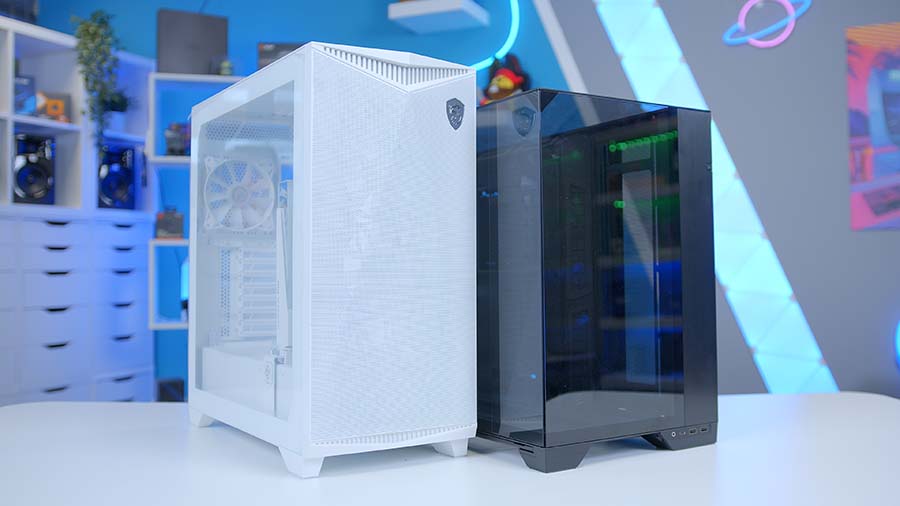
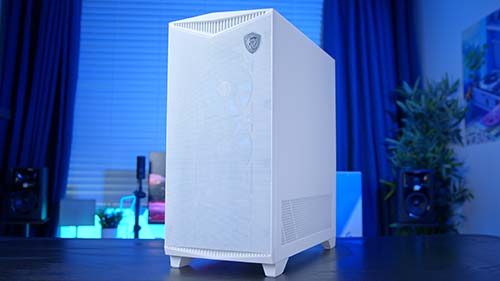



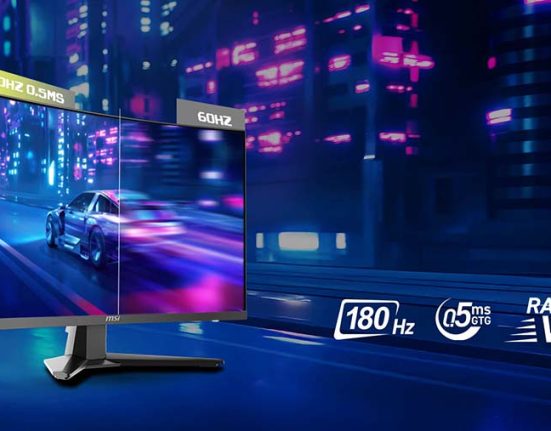
![FI_[DM89] Phanteks Evolv + AORUS 5090 9850X3D Gallery (8)](https://geekawhat.com/wp-content/uploads/2026/02/FI_DM89-Phanteks-Evolv-AORUS-5090-9850X3D-Gallery-8-551x431.jpg)
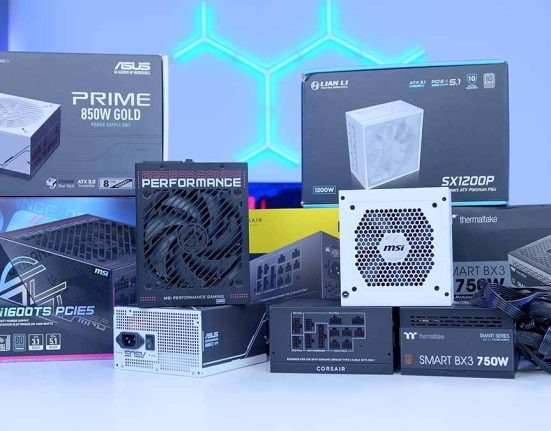
![FI_[DM88] 16GB DDR5 9060 XT Build Gallery](https://geekawhat.com/wp-content/uploads/2026/02/FI_DM88-16GB-DDR5-9060-XT-Build-Gallery-551x431.jpg)
